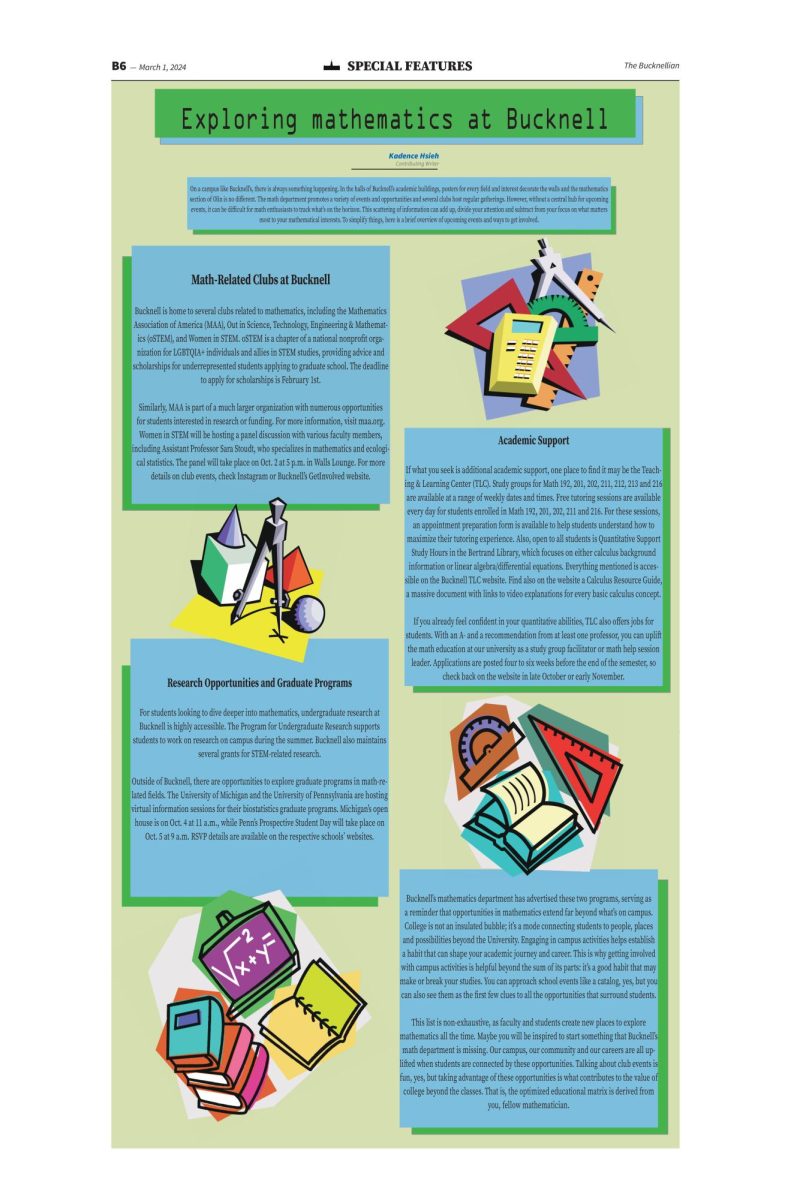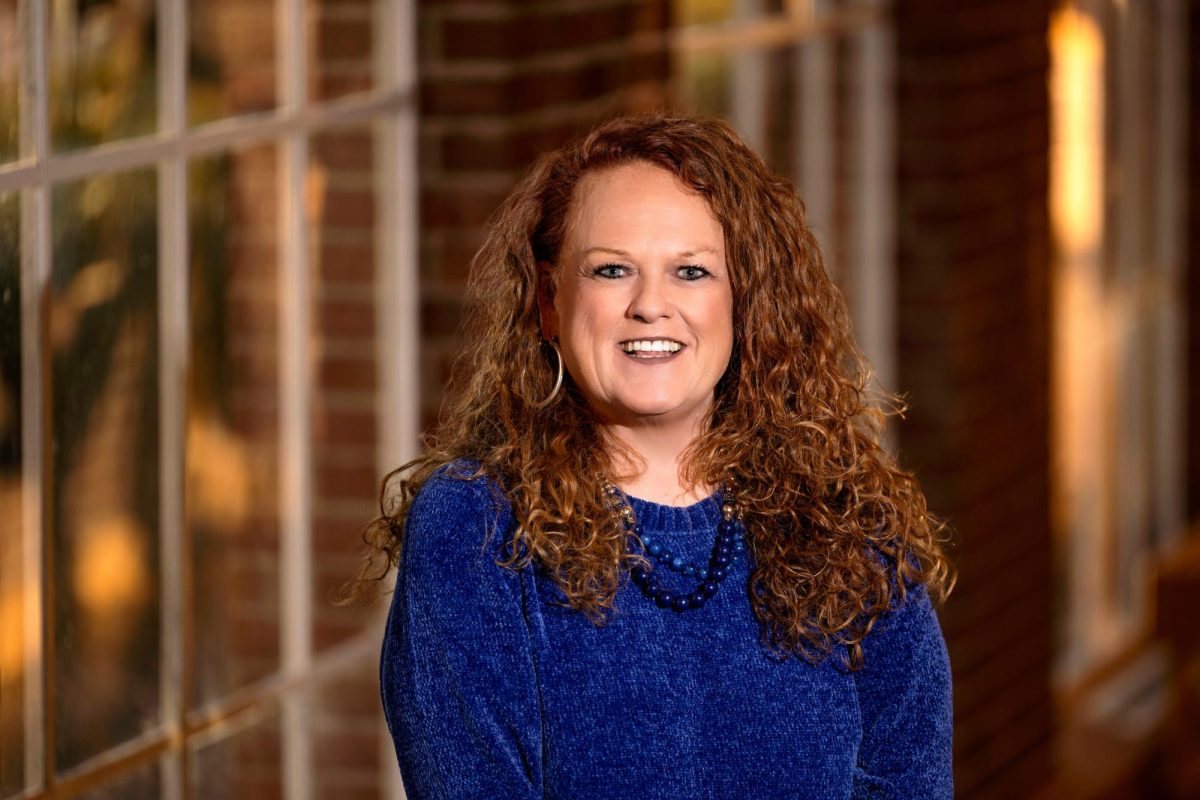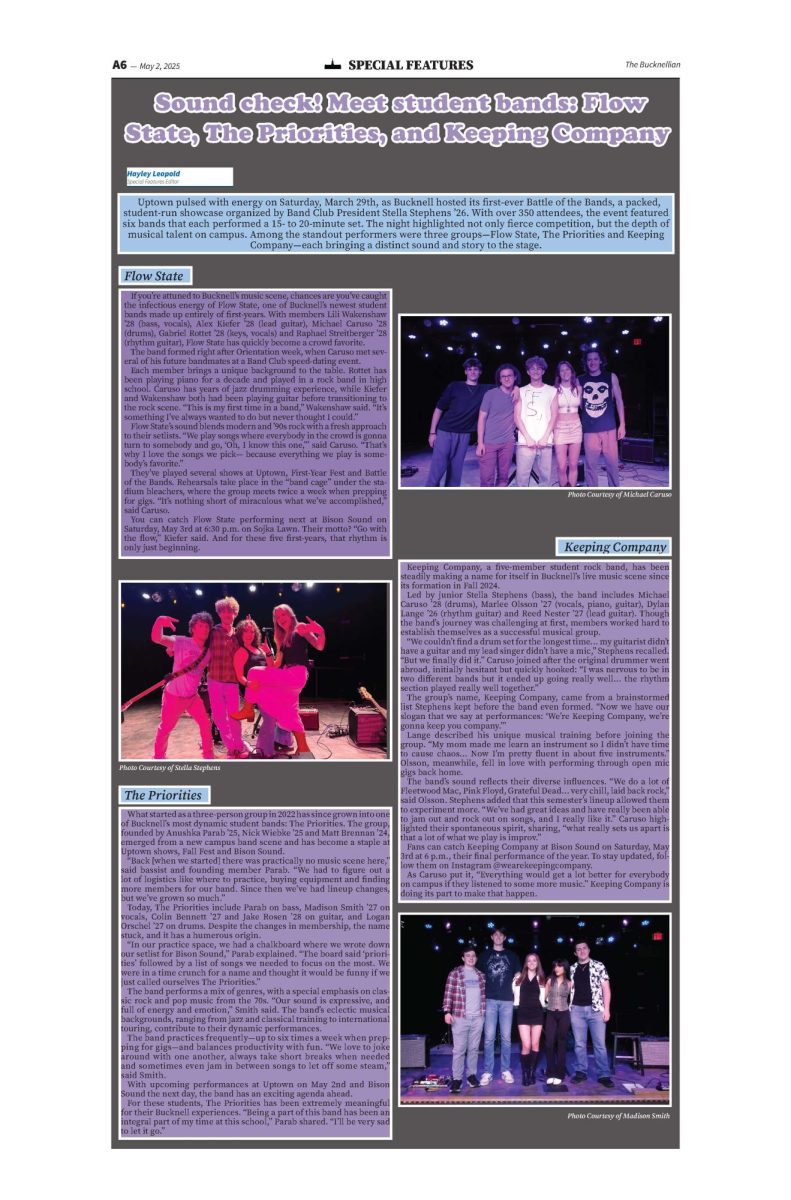On a campus like Bucknell’s, there is always something happening. In the halls of Bucknell’s academic buildings, posters for every field and interest decorate the walls and the mathematics section of Olin is no different. The math department promotes a variety of events and opportunities and several clubs host regular gatherings. However, without a central hub for upcoming events, it can be difficult for math enthusiasts to track what’s on the horizon. This scattering of information can add up, divide your attention and subtract from your focus on what matters most to your mathematical interests. To simplify things, here is a brief overview of upcoming events and ways to get involved.
Math-Related Clubs at Bucknell
Bucknell is home to several clubs related to mathematics, including the Mathematics Association of America (MAA), Out in Science, Technology, Engineering & Mathematics (oSTEM), and Women in STEM. oSTEM is a chapter of a national nonprofit organization for LGBTQIA+ individuals and allies in STEM studies, providing advice and scholarships for underrepresented students applying to graduate school. The deadline to apply for scholarships is February 1st.
Similarly, MAA is part of a much larger organization with numerous opportunities for students interested in research or funding. For more information, visit maa.org. Women in STEM will be hosting a panel discussion with various faculty members, including Assistant Professor Sara Stoudt, who specializes in mathematics and ecological statistics. The panel will take place on Oct. 2 at 5 p.m. in Walls Lounge. For more details on club events, check Instagram or Bucknell’s GetInvolved website.
Academic Support
If what you seek is additional academic support, one place to find it may be the Teaching & Learning Center (TLC). Study groups for Math 192, 201, 202, 211, 212, 213 and 216 are available at a range of weekly dates and times. Free tutoring sessions are available every day for students enrolled in Math 192, 201, 202, 211 and 216. For these sessions, an appointment preparation form is available to help students understand how to maximize their tutoring experience. Also, open to all students is Quantitative Support Study Hours in the Bertrand Library, which focuses on either calculus background information or linear algebra/differential equations. Everything mentioned is accessible on the Bucknell TLC website. Find also on the website a Calculus Resource Guide, a massive document with links to video explanations for every basic calculus concept.
If you already feel confident in your quantitative abilities, TLC also offers jobs for students. With an A- and a recommendation from at least one professor, you can uplift the math education at our university as a study group facilitator or math help session leader. Applications are posted four to six weeks before the end of the semester, so check back on the website in late October or early November.
Research Opportunities and Graduate Programs
For students looking to dive deeper into mathematics, undergraduate research at Bucknell is highly accessible. The Program for Undergraduate Research supports students to work on research on campus during the summer. Bucknell also maintains several grants for STEM-related research.
Outside of Bucknell, there are opportunities to explore graduate programs in math-related fields. The University of Michigan and the University of Pennsylvania are hosting virtual information sessions for their biostatistics graduate programs. Michigan’s open house is on Oct. 4 at 11 a.m., while Penn’s Prospective Student Day will take place on Oct. 5 at 9 a.m. RSVP details are available on the respective schools’ websites.
Bucknell’s mathematics department has advertised these two programs, serving as a reminder that opportunities in mathematics extend far beyond what’s on campus. College is not an insulated bubble; it’s a mode connecting students to people, places and possibilities beyond the University. Engaging in campus activities helps establish a habit that can shape your academic journey and career. This is why getting involved with campus activities is helpful beyond the sum of its parts: it’s a good habit that may make or break your studies. You can approach school events like a catalog, yes, but you can also see them as the first few clues to all the opportunities that surround students.
This list is non-exhaustive, as faculty and students create new places to explore mathematics all the time. Maybe you will be inspired to start something that Bucknell’s math department is missing. Our campus, our community and our careers are all uplifted when students are connected by these opportunities. Talking about club events is fun, yes, but taking advantage of these opportunities is what contributes to the value of college beyond the classes. That is, the optimized educational matrix is derived from you, fellow mathematician.






















